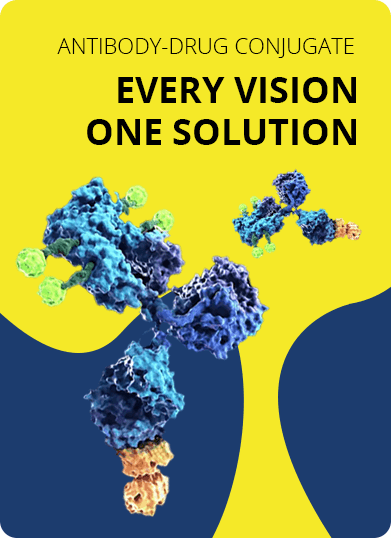- Home
- UTC Development
- Antibody-Enzyme Conjugate Development
- Antibody-directed Enzyme Prodrug Therapy (ADEPT) Development
- Antibody-Carboxypeptidase G2 Conjugate Development
- Prodrug-Benzoic Acid Mustard Synthesis
Prodrug-Benzoic Acid Mustard Synthesis Service
As a well-recognized expert being professional in antibody-directed enzyme prodrug therapy (ADEPT) development, Creative Biolabs provides benzoic acid mustards as a prodrug to generate novel ADEPT, which can be activated by the carboxypeptidase G2 enzyme to the toxic drug at the tumor site. Our high-quality benzoic acid mustards as a prodrug for the antibody-carboxypeptidase G2 conjugate development will promote your ADEPT project.
Benzoic Acid Mustards
The prodrug para-N-bis (2-chloroethyl) aminobenzoyl glutamic acid (CMDA) and its benzoic acid mustard derivative, para-N-bis (2-chloroethyl) aminobenzoic acid were synthesized by a modification of the method in 1962. Cleavage of the glutamic acid moiety was performed with CPG2 conjugated to the monoclonal antibody.
MOA of Benzoic Acid Mustards
The prodrug 4-[N, N-bis (2-chloroethyl) amino] benzoyl-L-glutamic acid (benzoic acid mustards) can be cleaved by CPG2, and thus yield the glutamic acid and 4-[N, N-bis(2-chloroethyl)amino] benzoic acid. The drug is a bifunctional alkylating agent in which the activating effect of the ionized carboxyl function is masked through an amide bond to the glutamic acid residue. The prodrug is designed to be activated to their corresponding bifunctionally alkylating benzoic acid derivatives at the tumor site by prior administration of a monoclonal antibody-enzyme conjugate.
Benzoic Acid Mustards-based ADEPT
In benzoic acid mustards-based ADEPT, the Benzoic acid mustards (CMDA) is a nontoxic prodrug catalyzed by an enzyme to release the toxic drug to accomplish tumor cell killing. Using CPG2 chemically linked to A5B7-(Fab’)2 anti-CEA, an effective therapy has been achieved in this model by administering the prodrug at 72 hr post 25 U of the conjugate, but the tumor enzyme level was only 0.5 U/g by this time and the tumor/plasma ratio was 5/1. These results indicated that MFE-23::CPG2 will be an effective therapeutic agent, as it delivers more than 4 times the amount of enzyme (2.4 U/g) to the tumor when blood levels are low enough to administer prodrug. These studies have been invaluable in confirming the efficacy of ADEPT with CPG2 and CMDA, providing that appropriate ratio of CPG2 can be achieved but a less complex system is clearly preferable.
With our well-established "DrugLnk" organic synthesis platform, the experienced scientists at Creative Biolabs are dedicated to helping you develop benzoic acid mustards prodrug using readily available and customized linkers for drug conjugation in a timely and cost-effective manner. Please feel free to contact us for more information and a detailed quote.
For Research Use Only. NOT FOR CLINICAL USE.

Online Inquiry
Welcome! For price inquiries, please feel free to contact us through the form on the left side. We will get back to you as soon as possible.
